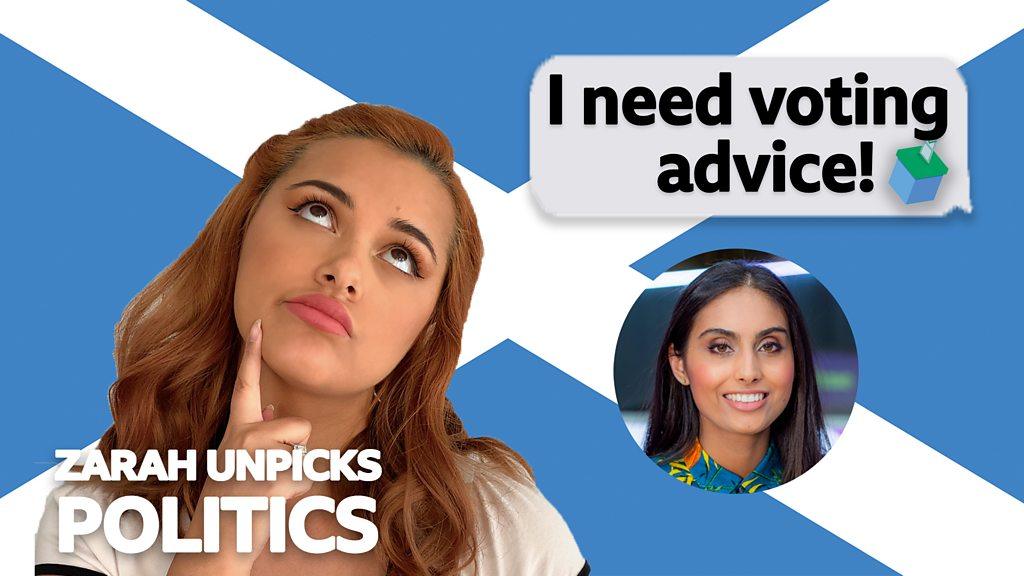Scottish election 2021: Leaders to take part in final debate of campaign
- Published
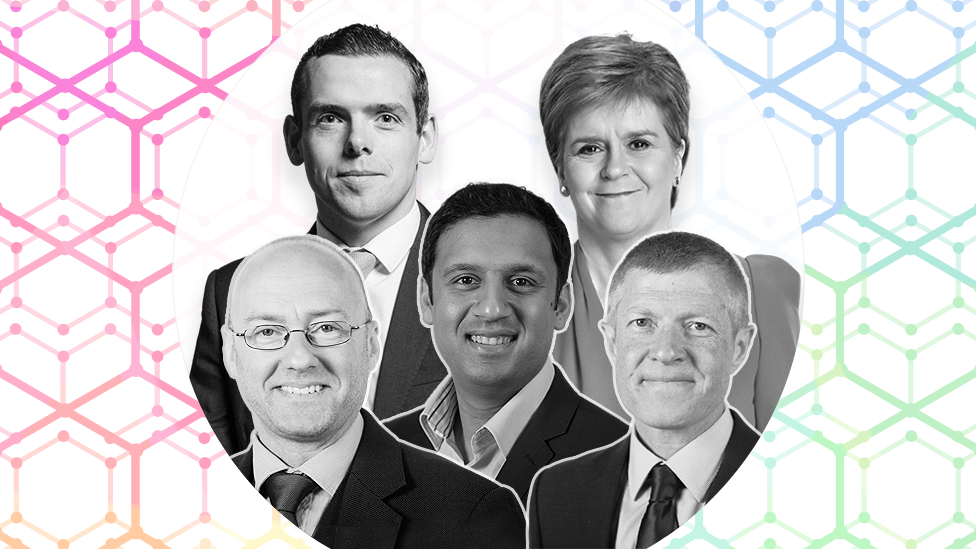
Scotland's political party leaders are to face off in the final TV debate before Thursday's Holyrood election.
The SNP's Nicola Sturgeon, Tory Douglas Ross, Labour's Anas Sarwar, Green Patrick Harvie and Lib Dem Willie Rennie will take part in the BBC event.
The five politicians will be making their final pitch to the electorate before Scotland goes to the polls on 6 May.
What is the debating style of each leader, what are the key topics which might come up, and how can you watch it all unfold?
What time is the debate?
Tuesday's programme will be on BBC One Scotland, starting at 19:50. It is being hosted by BBC Scotland Political Editor Glenn Campbell, and will last 70 minutes.
It can also be viewed on the BBC's News Channel and the iPlayer. It will be streamed live, with added analysis, on the BBC Scotland news website.
Earlier, a special broadcast of BBC Scotland's The Campaign programme, will air on BBC One Scotland and the BBC News Channel from 19:00, featuring interviews with other party leaders.

SIGN UP FOR SCOTLAND ALERTS: Get extra updates on BBC election coverage

Who is taking part - and what is their debating style?

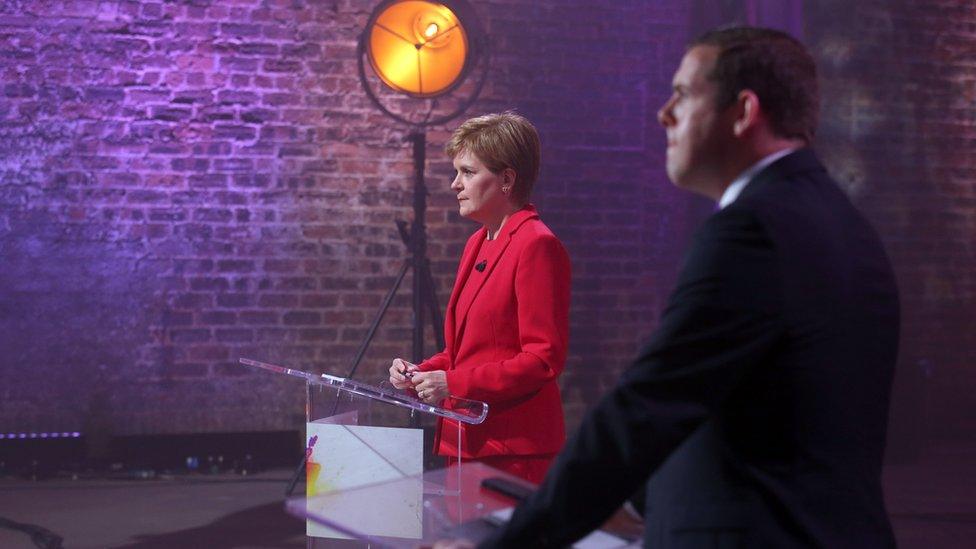
Nicola Sturgeon and Douglas Ross frequently clash over the constitution
Nicola Sturgeon is by far the most experienced leader in the field when it comes to debates, having fronted a series of election and referendum campaigns for the SNP.
She is always meticulously prepared for these events, and the Covid-19 pandemic has given her further practice at answering questions on tough topics from behind a lectern.
Her trademark style is to have detailed knowledge of her brief at her fingertips, always ready to reel off a statistic or a pre-planned attack line. However, she is also quite willing to roll up her sleeves and wade into fiery exchanges, and has clashed repeatedly with Douglas Ross in the campaign so far.
The Scottish Conservative leader is the least experienced debater of the five, having never even sparred with Ms Sturgeon at First Minister's Questions. He was elected to Holyrood via the Highlands and Islands list in 2016, but departed for Westminster the following year after winning the seat of Moray.
The MP usually seeks to take a combative approach in these live events, perhaps in a bid to underline the Conservative claim to be the only party capable of holding the SNP and the first minister to account.
This applies to other leaders as much as to Ms Sturgeon - Mr Ross frequently singles out his Labour rival Anas Sarwar, whose party are his key opposition for second place at Holyrood.
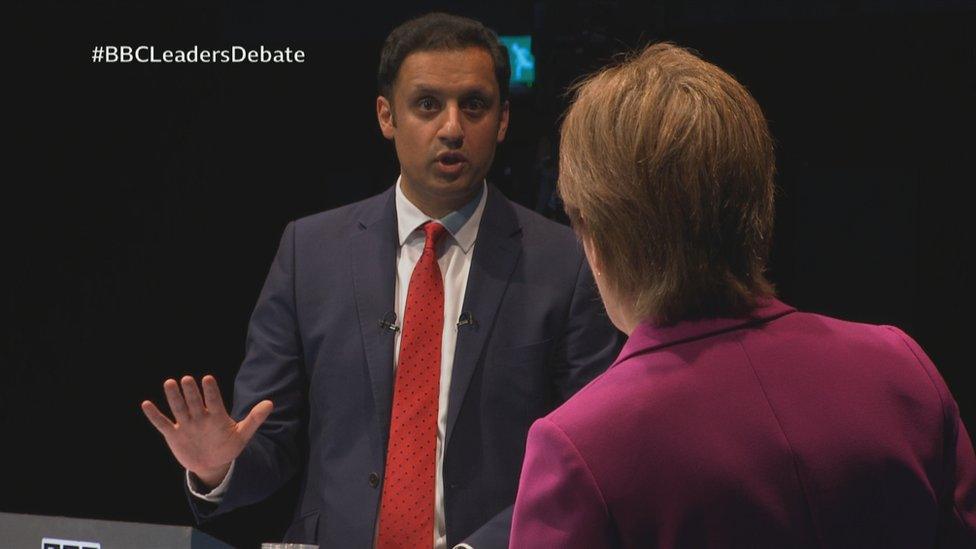
Anas Sarwar has only been Scottish Labour leader for nine weeks
Mr Sarwar is the newest leader of all, having been at the helm of Scottish Labour for only nine weeks.
His approach is deliberately a more reserved and conciliatory one, preferring to stand back while Ms Sturgeon and Mr Ross row about the constitution, shaking his head sadly in a teacherly fashion.
This is not necessarily because he shies away from a fight, but because Labour's whole pitch is that Scotland is poorly served by the SNP and Tories scrapping and "needs a better government and a better opposition".
Patrick Harvie is taking part in the final debate for the Scottish Greens, after his co-leader Lorna Slater contested the first.
He is actually the longest-serving (joint) leader of the Holyrood parties, having been in post since 2008, and has plenty of experience debating his rivals both in TV events and in the parliamentary chamber.
The Greens often feature as the "other" pro-independence party in debates dominated by the constitution, but its leaders are also keen to stress their environmental credentials to differentiate themselves from the SNP.
And finally there is Lib Dem leader Willie Rennie. He generally gives the impression of having a wonderful time on the campaign trail, having developed a trademark of engaging in wacky photo-ops.
However, Mr Rennie is a gritty performer in debates, and in this campaign has gone particularly hard after Ms Sturgeon and Mr Ross over their parties record in government at Holyrood and Westminster.
The Lib Dem leader will argue against independence, but with this position also held by the Tories and Labour frequently draws the debate back to his favourite devolved topics - education and mental health - to help his position stand out.
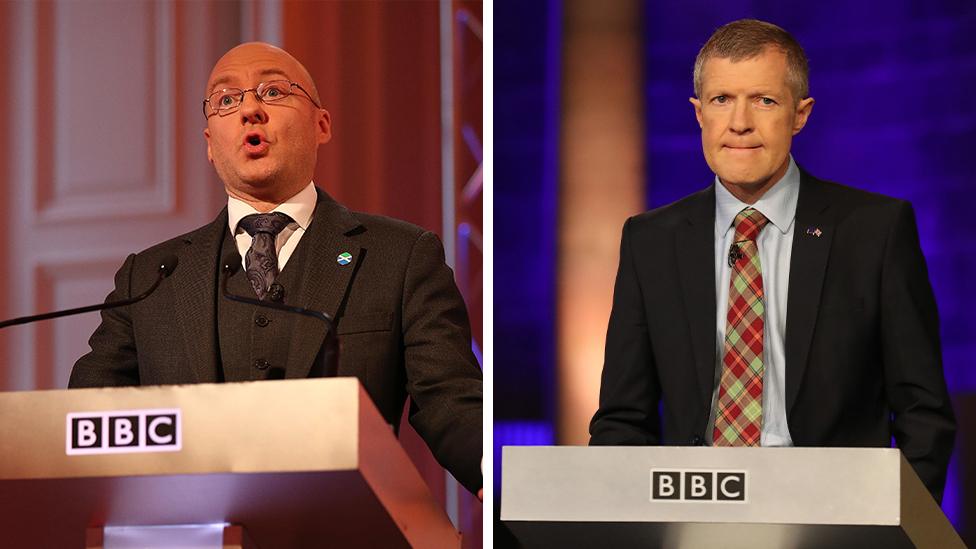
Patrick Harvie and Willie Rennie have both contested multiple debates for their parties


Why are leaders of smaller parties not taking part?
The BBC considers a number of factors when deciding who takes part in its TV election debates. One of those factors is based on previous and current electoral support. For example, the parties featuring in Tuesday's broadcast had MSPs elected to Holyrood in 2016. They also have elected representation in other chambers, such as local councils and at Westminster.
Ahead of an election the BBC issues a set of guidelines, which can be found here. They are general rules outlining how the broadcaster will cover things like day-to-day campaigning and debates. Although the leaders of smaller parties will not appear in this live television event there will be impartial and proportionate coverage of their campaigns in the coming weeks.
A special broadcast of BBC Scotland's The Campaign programme, featuring other parties, will air on BBC One Scotland and the BBC News Channel from 19:00.
What will the big topics be?
With the campaign in its final days, it is unlikely any of the party leaders will have held back a big policy announcement until this late stage - not least because many postal ballots will already have been sent back.
However they will still be keen to put in an energetic showing to make sure they can turn out their supporters come polling day.
The pandemic is sure to be a core topic in the debate, with many Covid-19 restrictions still in place - meaning there will be no live studio audience.
Each party has a competing vision of how Scotland should shape its recovery from the crisis, which in a way underlines all of their policy plans, from education to health and the economy.
And as with the rest of the campaign, the constitution is likely to continue to be the key faultline through the heart of Scottish politics.
Expect key exchanges to revolve around each party's position on the holding of a fresh independence referendum - and how they think the election result should play into that.

POLICIES: Who should I vote for?
PODLITICAL: Updates from the campaign

- Published3 May 2021
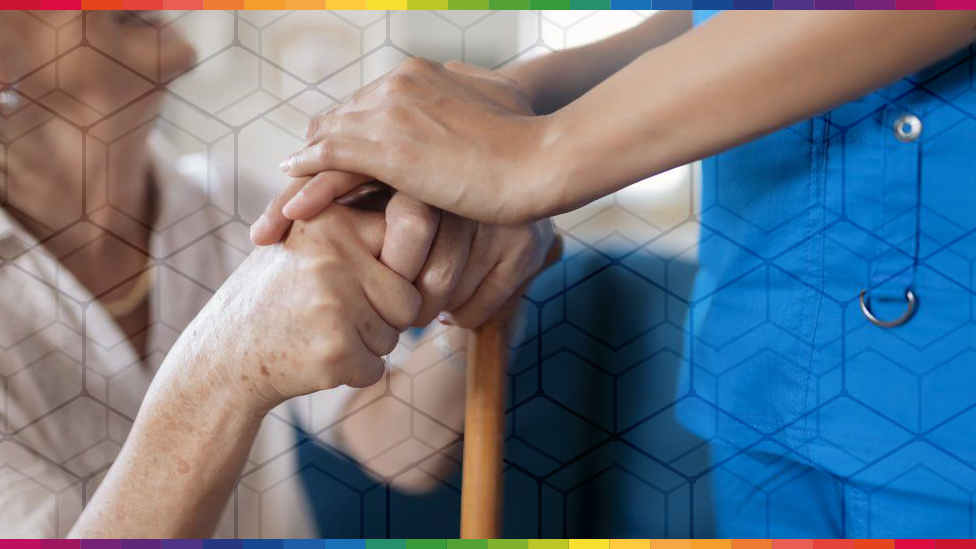
- Published3 May 2021
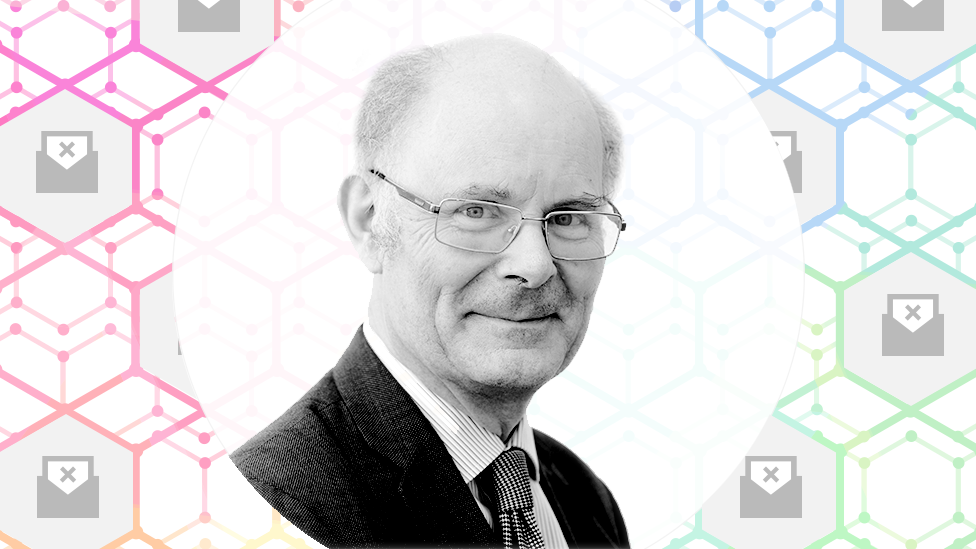
- Published1 May 2021
